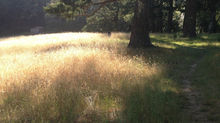Getting in the mode
- K.D. Lovgren
- May 14, 2015
- 3 min read
Originally appeared on J.A. Konrath's site as a guest post. www.jakonrath.com
These are the things I tell myself while I write a novel. This is my wiser self, speaking to the one who flails about and doesn’t believe. This is what works for me. Want to eavesdrop?
Get in the bubble. The bubble where you can get lost in another world.
Go to a music service that lets you create a playlist. Think about the scene you want to write. Choose a playlist of a bunch of songs that create the mood you want for that scene. Name the playlist your story’s name.
Put in the earphones. Press play.
Open writing software. Hold the scene in your head, the one that inspired you, that bit of dialogue or image of a character or location. Begin writing out of the mood inspired by the music and the image in your head.
Is the music not jibing? Go back and mess with the playlist. Get it right.
Each story, sometimes even each important character, might have a different type of music.
Get to the place where you’re not thinking about what’s next. Get caught up in a tide of movement impelling the story forward, effortless and in the dream.
This is the shift from the analytical mind, the critical mind, to the freer-flowing, associative brain. Shed the to-do list, the thoughts of others, anticipation and regret, and live in a present that allows the story to take over. It’s a pleasurable state, but that’s an afterthought. It’s being suspended in time, in a state of flow, as described by Milhaly Csiksentmilhaly in his book Flow.
Let the story lead you, instead of pushing it where you think it should go. When you have to force it, over and over again, butt your head against character and plot issues, you’re not letting a deeper knowledge take over, the part of you that knows better than your everyday self. Take off the daily thinking cap. Access the deeper fount of creation.
If you need a reassuring voice, remember the books that helped you get a feel for what is necessary:
Becoming a Writer by Dorothea Brande
On Becoming a Novelist by John Gardner
If You Want to Write by Brenda Ueland
Remember the ingredients for that atmosphere of creation:
A comfortable chair with lower back support and an ottoman to put your feet up. A place to rest your elbows while you type.
A playlist which creates a mood for what you’re writing. More important than lyrics or type of music is the feeling it creates when you listen to it.
A pleasing spot to rest your eyes when you look up from the screen.
A drink to hand, tissues, lip balm, etc—whatever means you won’t have to get up unnecessarily and break the dream.
That’s it.
With that, you’re ready to fly.
When you get to the editing phase, remember well. This can be a treacherous swamp, with many “fool’s self-chosen snares.”
Back story, cut it out. Too much exposition, cut it out. Stuff you needed to know to write the story but the reader has no need for, cut it out. When in doubt, cut it out. Sentences that you think are lyrical masterpieces, cut them out.
Be wary of what you love as much as what you loathe. Therein is the tricky balance: you must be dispassionate, as an editor of yourself. You must cut out like a surgeon those parts that your instinct tells you do not belong. You must have a longer vision, not the close-up worriting of the copyeditor, but the long-sighted view of a detached observer.
You may hate your work, at this stage. You may hear a voice that says it’s stupid, juvenile, embarrassing, and pointless. Do not listen to that voice. That voice is as untrustworthy as the one that tells you it’s wonderful. Ignore the hyperbole on each side and continue to be the dispassionate god of your world, doing only what is necessary.
Let go of perfectionism. Professional will suffice. The perfect manuscript is by its nature unpublished. Give your work. The circle is complete when the story is re-created in the mind of the reader: a collusion between writer and reader. Let it go so you can get the gift back in what you learn from giving it.












Comments